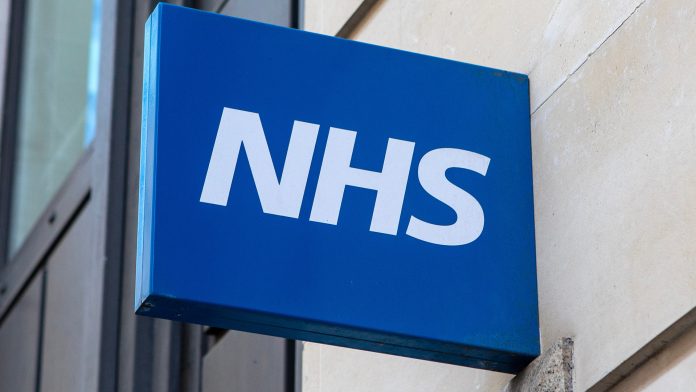
Health Europa looks at how a basic income scheme could revolutionise NHS funding, potentially saving billions of pounds.
In the tapestry of socio-economic strategies, there is a thread that has started to gain attention – the concept of unconditional or basic income. A basic income scheme, which involves providing all citizens with a set amount of money regardless of their employment status, comes across as an audacious proposal in the face of traditional economic thinking.
However, it’s worth noting that it has been examined for its potential benefits in various aspects such as poverty alleviation and mental health improvement.
One arena where this scheme could potentially demonstrate significant impact is healthcare expenditure – particularly within the context of the National Health Service (NHS) in the United Kingdom.
The argument rests on the hypothesis that guaranteed income can lead to improved overall health and well-being among citizens, thereby reducing dependency on healthcare services and consequently leading to financial savings for NHS. It’s an intriguing proposition that invites closer scrutiny through empirical evidence and theoretical arguments alike.
Understanding the concept of unconditional payments
The concept of unconditional payments, often referred to as a basic income scheme, entails regular cash transfers made by the state to all residents, irrespective of their employment status or wealth. This facilitates payment equality by ensuring that every citizen receives a specified amount of money on a regular basis.
The universal allocation covers both the employed and unemployed, rich, and poor thereby promoting social equity. It is premised on the idea that everyone has a right to basic financial stability which should not be tied solely to employment.
One of the primary objectives of this system is to provide income security through consistent monetary benefits that can either supplement low wages or act as a safety net for those without any source of income.
Furthermore, it provides financial freedom by reducing dependence on precarious jobs and exploitative work conditions. With an assured basic income, individuals are afforded more choices in terms of occupation, education, and leisure activities among other things; thereby enhancing their overall quality of life.
Moreover, this model holds the potential for economic empowerment especially among vulnerable communities. Reduced financial stress means individuals have more time and resources to invest in skills acquisition and entrepreneurial ventures which can catalyse local economic growth.
Additionally, it has been postulated that such systems could also lead to improved social welfare outcomes including reduced poverty rates, better health indicators, and increased educational attainment levels in communities where they are implemented effectively.
Thus, unconditional payment schemes embody an innovative approach toward creating more equitable societies with enhanced individual autonomy over personal finances.
Potential health benefits of guaranteed income
Guaranteed income programmes have been linked to significant improvements in health outcomes, potentially leading to reduced costs for healthcare systems globally.
Despite concerns about the potential misuse of funds, research has consistently shown that such programmes often result in improved mental and physical wellbeing among beneficiaries.
These benefits are largely attributed to the alleviation of financial stress and enhanced capacity for individuals to meet their basic needs, thereby improving overall quality of life.
Reducing stress is a key factor in this equation. The financial security provided by guaranteed income reduces economic strain, contributing to mental health improvement by reducing anxiety and depression rates.

Chronic disease reduction is also observed as a consequence of lessened worry over finances; stress-related conditions like hypertension and heart disease see a notable decline under such schemes.
Additionally, poverty alleviation brought about by a basic income scheme can lead directly to better nutrition enhancement as recipients are able to afford healthier food options rather than resorting to cheaper, less nutritious alternatives commonly associated with low-income households.
In tandem with these benefits, there is evidence suggesting a decrease in alcoholism when recipients are presented with an assured source of funds. This contradicts common fears that unconditional payments could encourage unhealthy behaviours or dependencies.
Instead, the data indicates that it provides a platform for stability allowing individuals facing hardship an opportunity not just for survival but for substantial improvement in their health status.
This ultimately translates into potentially massive savings for healthcare systems like the NHS through decreased demand for services due to improved population health.
The impact on healthcare expenditure
Implementing a universal basic income programme may significantly reduce healthcare costs by improving overall population health, thus reducing the demand on healthcare services. This reduction in demand could potentially save the NHS tens of billions of pounds each year.
The primary mechanism through which this occurs is by reducing the incidence and severity of health problems that require costly interventions, such as hospitalisations and emergency care.
The impacts on healthcare expenditure can be categorised under three main areas:
- Reduced hospitalisations: Providing a stable income to individuals irrespective of their employment status can alleviate financial stress, leading to improved mental health. This subsequently reduces the need for hospital admissions due to stress-related illnesses.
- Spending efficiency: With a basic income scheme in place, individuals are more likely to invest in preventive measures like regular check-ups and healthier lifestyle choices. Such proactive steps can aid in early disease detection or prevention, saving significant costs associated with treating advanced stages of diseases.
- Public health impact: A guaranteed income can have positive effects at a community level too – improving living conditions and food security, thus fostering better overall public health.

Amid these potential benefits lies another promising aspect – emergency care savings. With less financial insecurity there is likely to be fewer emergencies arising from untreated or poorly managed chronic conditions.
Furthermore, improvements in mental health could result in fewer crisis situations requiring emergency intervention.
In addition to direct savings from reduced use of high-cost services, indirect savings may also materialise from increased productivity and lower social service expenses when people are healthier and less stressed.
Therefore, it becomes evident that incorporating a basic income scheme could positively influence not only individual lives but also transform public spending dynamics towards more efficient pathways while simultaneously promoting optimal health outcomes across communities.
Case studies supporting the potential of a basic income scheme
Examining real-world models sheds light on the potential of a basic income scheme; for instance, an interesting case comes from the city of Stockton in California.
In 2019, a select group of residents started receiving $500 per month with no strings attached – a move akin to planting seeds in infertile land.
After one year, preliminary data revealed significant improvements in recipients’ wellbeing: fewer instances of depression and anxiety, better performance at work or school, and improved health outcomes – painting a vivid picture of how financial stability can serve as fertile ground fostering healthier societies.
Analysing this initiative’s behavioural effects provides further insight into its potential benefits.
Recipients reported less stress about meeting basic needs such as food and housing, which directly corresponds with higher rates of mental well-being.
Notably, this programme also had positive implications for income inequality and poverty reduction – critical elements in improving overall social welfare. The alleviation of financial strain allowed individuals more freedom to invest in their health, echoing similar findings from Finland’s universal basic income experiment where recipients were found to have fewer health problems compared to those not receiving the benefit.
The case study also illuminates intriguing employment dynamics under a universal basic income scheme. Contrary to concerns about reduced motivation for work, many recipients utilised the funds as a safety net allowing them to take risks towards better job opportunities or pursue further education – contributing to economic stimulation through enhanced productivity and upward mobility.
This evidence provides compelling support for the argument that universal basic income could lead not only to improved individual well-being but also substantial savings on healthcare costs by reducing demand for NHS services due to preventable illnesses related to financial stress.
What are the challenges and controversies of a basic income scheme?
Despite the promising outcomes illustrated in these case studies, universal basic income programmes are not without their share of controversies and challenges.

The issue of scheme sustainability is a primary concern, as the long-term viability of such programmes depends on consistent funding sources and robust economic conditions. Uncertainty regarding consistent and sustainable funding sources for universal basic income initiatives can pose significant difficulties in their implementation and continuity.
Furthermore, economic implications cannot be ignored; some critics argue that providing an unconditional income might disincentivise work, potentially leading to a decline in productivity levels.
Political opposition also presents a considerable challenge to the adoption of basic income schemes.
Political attitudes towards welfare policies differ drastically across various political ideologies, and this variance could impede consensus-building efforts required for implementing such reforms.
Moreover, integrating a universal basic income scheme into the existing welfare system integration poses additional complexities as it necessitates restructuring current social security systems, which might be met with resistance from various societal sectors that favour maintaining established structures.
Addressing income inequality is another contentious aspect associated with universal basic income schemes. While proponents argue that such schemes would help reduce poverty rates by ensuring everyone receives a minimum amount of money regardless of their employment status or wealth level, opponents suggest that it might inadvertently exacerbate inequality by distributing resources uniformly without considering differences in needs among recipients.
Henceforth, while there exists potential for substantial savings in healthcare expenditures through the implementation of universal base incomes – as evidenced by several case studies – these myriad challenges underscore the need for careful deliberation before adopting such radical socioeconomic reforms.










